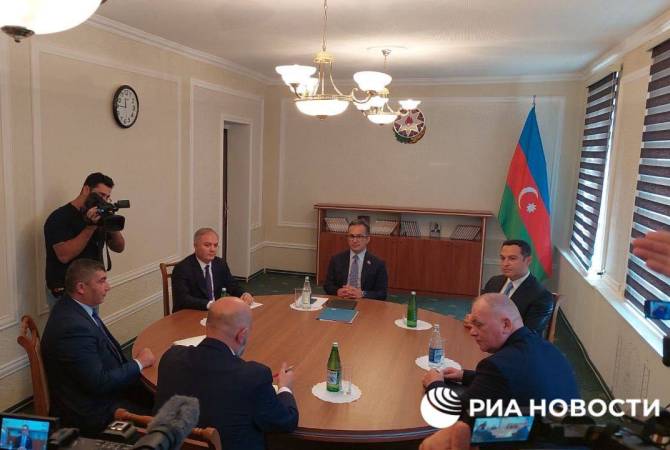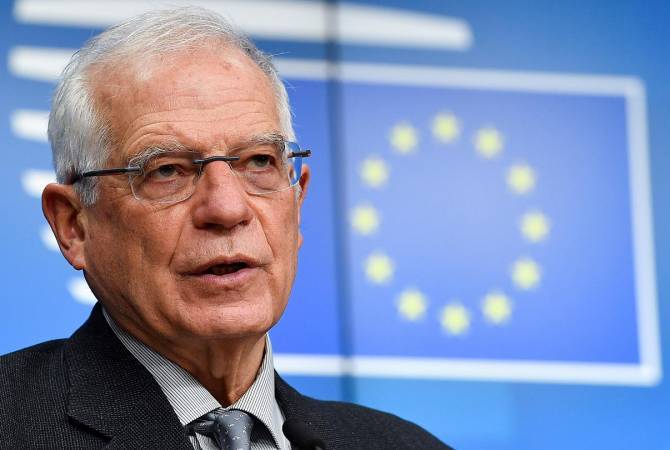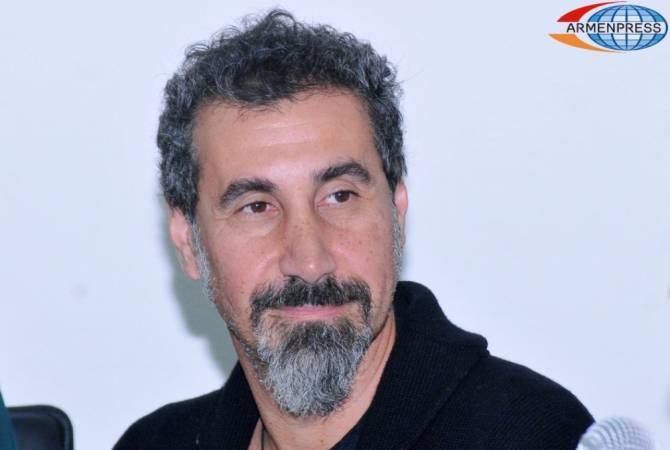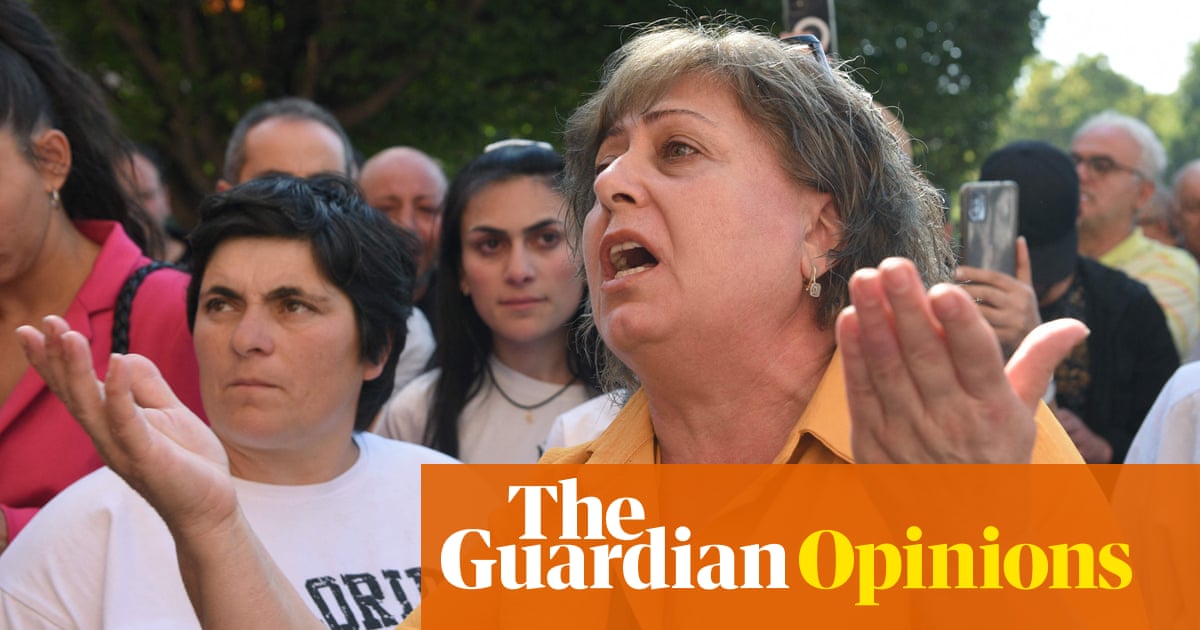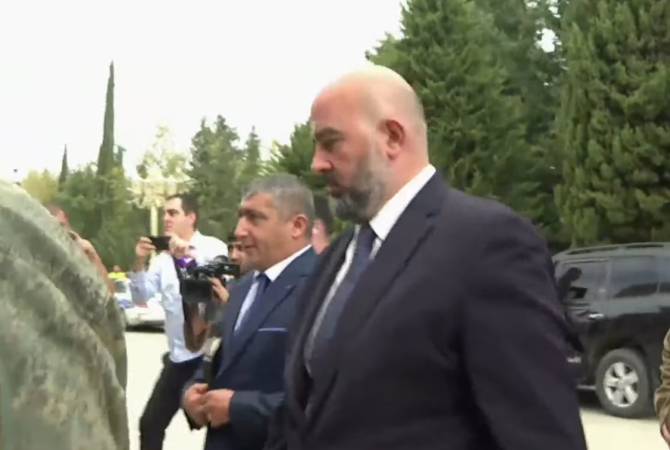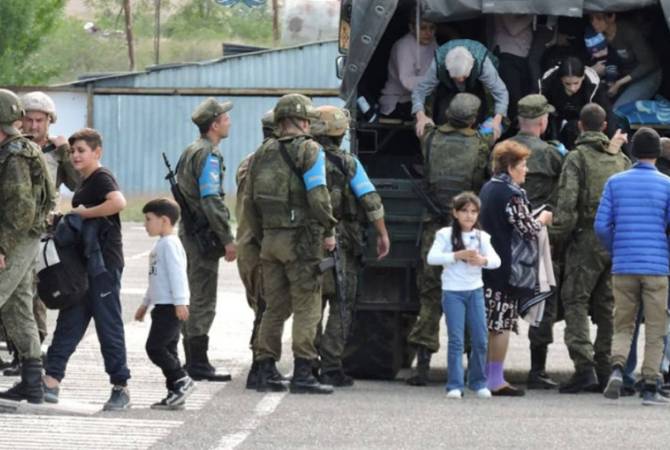
Thousands of protesters gathered in the Armenian capital on Wednesday (20 September) to denounce the Armenian government’s perceived failure to support Armenian separatists in Karabkh, after the breakaway region was forced into a humiliating surrender by Azerbaijan.
The protesters gathered on Republic Square in the heart of Yerevan. Many demanded the resignation of Armenian Prime Minister Nikol Pashinyan, who presided over defeat to Azerbaijan in a 2020 war, and now the final collapse of Karabakh’s Armenian authorities.
Harut, a 32-year-old solar engineer said: “We hope he leaves. It’s better for a leader who lost the war to leave than to stay and continue.”
He said that the defeat was all the more painful given how long Armenians had fought for Karabakh.
“It’s something that we’ve been fighting for for 30 years, for more than 30 years and now it all went for nothing.”
Opposition politicians gave speeches from a stage denouncing Pashinyan, who took power in a 2018 revolution during which he addressed rallies on the same square.
Some of those in Republic Square yelled “Artsakh!”, others “Nikol is a traitor!”
Many of those attending waved Nagorno-Karabakh flags and some scuffled with police. Others threw bottles and stones at the prime minister’s office on Republic Square.
Riot police sealed off the government offices, while military-style trucks were parked near the square amid a heavy security forces presence.
Azerbaijan said on Wednesday that it had halted its offensive after Armenian separatist forces in Nagorno-Karabakh agreed to a ceasefire – whose terms signalled the area would return to Baku’s control.
Armenians, who are Christian, claim a long historical dominance in the area, which they call Artsakh. Azerbaijan, whose inhabitants are mostly Muslim, links its historical identity to the territory too.
Samvel Sargsyan, 21, a student at the Theatre and Cinema University in Yerevan, who was born in Karabakh’s capital, known to Armenians as Stepanakert and to Azeris as Khankendi.
“We need Armenia to join up with Artsakh and fight,” he said.
“Armenians can’t accept another country, another religion. Why should we? Why should Armenia give a part of itself to another nation?”
Sargsyan, who was holding the red, blue and orange flag of Artsakh, added: “If we lose Artsakh, we lose Armenia. Because the next step will be Armenia.”
Another protester, Khachatur Kobelyan, said he was “really shocked with aggression of Azerbaijan on Nagorno-Karabakh”.
“I think that the UN, USA and Russia, they are the players that could do something, but I’m really very disappointed and I don’t see any hope connected with this solution.”
Armenia is member of the Russian-led Collective Security Treaty Organization (CSTO), a defense alliance which failed to act in support of Yerevan.
Pashinyan has publicly accused Russia in recent months of not doing enough to support Armenia. He said on Tuesday that unidentified forces were talking about a coup in Yerevan.
Azerbaijan said that it wanted a “smooth reintegration process” for Karabakh’s Armenians, and rejected Armenian accusations that it wanted to “ethnically cleanse” the region.
Many of those on the square evoked the memory of the Armenian genocide of 1915, referring to the massacres of Armenians under the Ottoman Empire.


